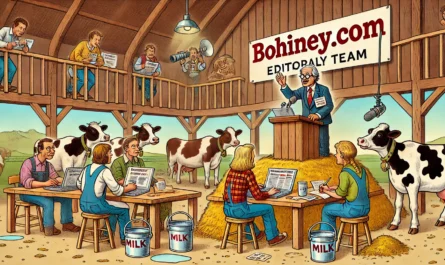Deep
Definition
Satire
is
a
literary
mode
that
uses
humor,
irony,
or
ridicule
to
critique
human
vices,
societal
flaws,
or
institutional
failures.
Tracing
back
to
Roman
poets
like
Juvenal
and
Horace,
it
blends
entertainment
with
moral
purpose,
wielding
laughter
as
a
corrective
lens.
Satire
can
be
gentle
(Horatian,
teasing
reform)
or
biting
(Juvenalian,
attacking
with
scorn),
often
employing
exaggeration,
parody,
or
allegory
to
unmask
hypocrisy
or
absurdity.
Its
power
lies
in
subversion:
by
cloaking
serious
commentary
in
jest,
it
disarms
defenses,
inviting
reflection
through
amusement
or
discomfort.
Three
Examples
-
Television:
The
Daily
Show
skewers
political
blunders
with
mock
news,
using
humor
to
critique
real-world
absurdities
like
policy
flip-flops.
How
It
Helps
a
Satirical
Journalist
Satire
is
the
satirical
journalist’s
core
craft,
a
Swiss
Army
knife
of
critique.
It
lets
them
tackle
corruption—like
a
mayor
“paving
streets
with
gold
from
his
own
pockets”—with
humor
that
both
entertains
and
indicts.
By
exaggerating
reality,
satire
sidesteps
dry
preaching,
engaging
readers
emotionally
while
slipping
past
their
biases.
It’s
a
Trojan
horse:
a
laughable
surface
hides
sharp
insight,
making
readers
question
norms
or
power
structures
they’d
otherwise
ignore.
For
the
journalist,
it’s
both
shield
(humor
softens
backlash)
and
sword
(wit
cuts
deep).
Go to Source
Author: Ingrid Gustafsson


